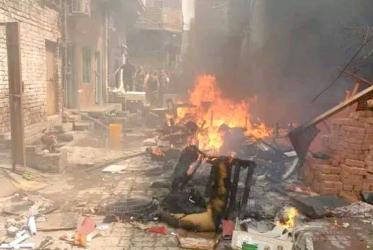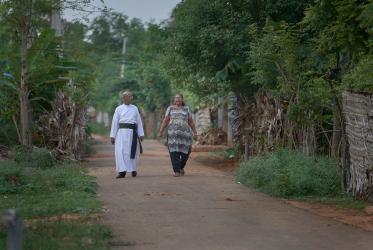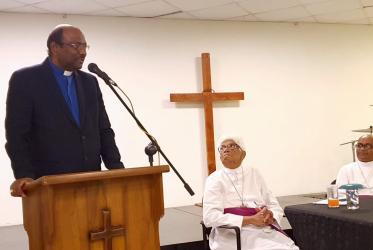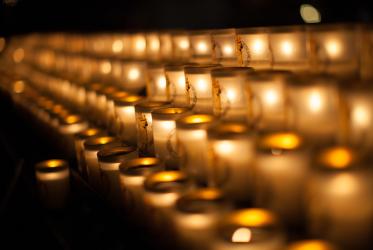Sent by the General Secretary, August 1999.
The World Council of Churches has followed with deep concern the recent political developments in Sri Lanka. Faced with a political crisis because of the decision of the Sri Lanka Muslim Congress to withdraw from the ruling coalition and the move by the major opposition party, the United National Party, to introduce a "No Confidence Motion" against her Government, President Chandrika Kumaratunga decided to prorogue the Parliament. She also decided to issue a call for a Referendum in August, on the adoption of a new constitution. The decision of the President has caused widespread unrest and has been condemned by the leadership of political parties, religious groups and civil society organisations. There have been protests and demonstrations all over the country, resulting in street battles between the people and the security forces that have caused deaths and injuries to civilians.
To add to this political problems of the government, the attack on the morning of 24th July, by a group of suicide bombers of the Liberation Tigers of Tamil Eelam (LTTE) on the Bandaranaika International Airport and the adjacent Air Force Base, caused heavy damage to military and civilian aircraft raising concerns about the overall security situation in the country. Since the present government took over the government, the country has suffered much with fluctuating military fortunes in the North negating Government's claims of "War for Peace". In the South there has been one political crisis after another.
The political instability and the on-going war have taken a heavy toll of the country's economy. With prices soaring and the general security situation at its lowest ebb, common citizens have been the major victims of this never-ending spiral of violence and uncertainty.
As the 24 July statement of the National Christian Council of Sri Lanka points out: "A National priority must be the establishment of a new political culture through which a political space will emerge for the strengthening of democratic institutions ushering in peace and the development of the country". "There should be an end to confrontational politics in the larger interest of the country and its people".
The Norwegian Peace initiative that was welcomed by both parties to the conflict and has the backing of the international community provided a ray of hope for the people of Sri Lanka before the current political crisis began. It is imperative that the Government not only initiates a dialogue with the opposition political parties in the South to overcome the present Constitutional crisis, but also, takes steps to revive the Norwegian Peace initiative for talks with LTTE.



